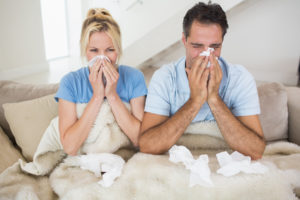Mold – An Indoor Toxin that Needs Prompt Attention

Mold – An Indoor Toxin that Needs Prompt Attention
No one wants mold in their home but unfortunately, our homes provide plenty of places for the toxin to hide. Finding the hiding spots and addressing issues is the first step in monitoring and maintaining a mold-free environment.
Mold and Health Issues
Mold is common and causes a variety of symptoms to those who come in contact with the spores. A few of the most common symptoms include:
– autoimmunity
– asthma
– fatigue
– hair loss
– headaches
– insomnia
– nausea
– weight loss
Places of Interest
One area in the home that can be a hotbed of activity for moisture is the bathroom. Humidity gathers in the room and creates the perfect environment for mold to grow. To help eliminate moisture and humidity, always run the fan to keep the room ventilated. If your bathroom doesn’t have a small exhaust fan, have one installed.
Do visual checks around sink pipes under the cabinets in the kitchen and vanity in the bathroom, as well as behind wallpaper exposed to humidity. Find the source and contact an NYC mold removal specialist to address the problem.
Another area to check is your car. If there are any openings where the seals lining the trunk or around windows have deteriorated or been damaged, water can seep in, accumulate in upholstery, and create that musty smell that is a sure sign of mold.
Water pipes leaking behind a wall and roof leaks will affect drywall, floors, and ceiling tiles where mold can grow and wreak havoc.
If you have a moldy situation, calling in professional NYC mold removal specialists from Stern Mold is recommended. We know how to treat mold safely. Call us today.


